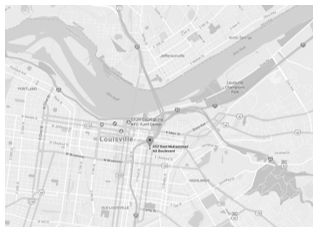Frequently Asked Questions
Program Details
What degree will I earn through this program?
Students will earn a Doctor of Nursing practice (DNP) degree upon completing the program. Graduates from an accredited program are eligible to take the National Certification Exam (NCE) provided by the National Board for Certification and Recertification of Nurse Anesthetists (NBCRNA) which is required to practice as an APRN in the role of the CRNA.
How long does the program take?
The BSN-DNP program is 36 months in length requiring 112 credit hours.
When does the program start?
The program enrolls students once a year in the fall semester.
How much time should I expect to commit to the program a week?
64 hours a week on average.
Is part-time study available?
No, the program is only available as a full-time program of study.
Can I work and attend the program?
Students are strongly discouraged from working while in the program due to the high level of academic and clinical engagement that is expected of students.
Is the program online?
No, this program does not have an online option.
Who teaches classes?
Didactic coursework is taught by experienced doctorally prepared CRNAs that are actively practicing in the Louisville community.
When do clinicals start?
We follow an integrated program model. Students will be engaged in hands-on simulation training beginning in the first semester. Introductions to hospital clinical training will begin in the student’s third semester and continue to increase throughout the remaining two years of study.
Will I have to travel outside of Louisville for clinical rotations?
While our primary clinical sites for first and second year students are located in Louisville, we do have enrichment sites throughout the region that third year students may be required to travel to. Visit our Clinical Sites page for more information about site locations.
What are the program’s Attrition, NCE Pass Rates, & Employment Rates?
Since we are a new program, there is currently no data to report on attrition, NCE pass rates, or employment rates since. We will continue to update our website with this information as we gather it, which can be found here.
Is financial aid available?
Yes, financial assistance is available. Please see the School of Nursing’s Financial Aid & Scholarship page for more information. (hyperlinked: https://louisville.edu/nursing/financial-aid/financial-aid-scholarships)
Admissions
How many students are accepted each year?
The program anticipates accepting 24 students per cohort.
Which science courses are required for acceptance?
Applicants need to have taken the following undergraduate courses: Human Anatomy, Physiology, Microbiology, and Chemistry.
Is the GRE required to apply?
Yes, the GRE is required for all applicants. Scores must be within 5 years of application. Preference is given to those who demonstrate proficient analytical skills.
Where do I submit my shadowing documentation?
All required documents, including the shadowing documentation, must be uploaded and verified by NursingCAS on or before the published application deadline.
I don't work with pediatric patients. Do I still need to submit PALS certification?
Either ACLS or PALS is required for application to the program. Student will need both certifications before clinicals begin in the third semester of the program. It is recommended that applicants who do not have their PALS certification begin making arrangements to be certified.
Do I need to have CCRN certification prior to applying?
Yes, the CCRN certification is required in order to be considered for the program. All required documents, including the CCRN certification, must be uploaded and verified by NursingCAS on or before the published application deadline.
What is considered critical care experience?
The Council on Accreditation of Nurse Anesthesia Educational Programs (COA) provides the following guidelines on critical care experience: “A critical care area is defined as one where, on a routine basis, the registered professional nurse manages one or more of the following: invasive hemodynamic monitors (e.g., pulmonary artery, central venous pressure, and arterial catheters), cardiac assist devices, mechanical ventilation, and vasoactive infusions. Examples of critical care units may include but are not limited to: surgical intensive care, cardiothoracic intensive care, coronary intensive care, medical intensive care, pediatric intensive care…” (Standards for Accreditation of Nurse Anesthesia Programs, Practice Doctorate, 2021).
Areas not typically considered as critical care include, but not limited to: PACU; Emergency Department; Cardiac Cath Lab; Operating Room.
We will accept Neonatal ICU and Pediatric ICU provided the environment meets the above COA definition of critical care experience.
Will the program accept Neonatal and/or Pediatric ICU training as critical care experience?
Yes, we will accept Neonatal ICU and Pediatric ICU experience provided the environment meets the above COA definition of critical care experience. Applicants will be required to submit an employment verification form that confirms the standards of critical care apply to their job responsibilities and work environment.
Where do I submit my employment verification form?
All required documents, including the employment verification form, must be uploaded and verified by NursingCAS on or before the published application deadline.
Who should write my recommendation letters?
Recommendations letters should be written by someone who can addressed the applicant’s academic ability, professional competency, and personal character. Suggested recommenders include former professors, current CRNAs, supervisors, and current or former co-workers.
Does your program accept transfer students from other nurse anesthesia programs?
The program will review all requests to transfer on a case-by-case basis. Please contact the Program Director for more information.
How can I find out more information about the Nurse Anesthesia Program?
For more information or questions about the admissions and application process, please contact the program’s Administrative Services Manager, Sarah Exner, at sarah.exner@louisville.edu.
